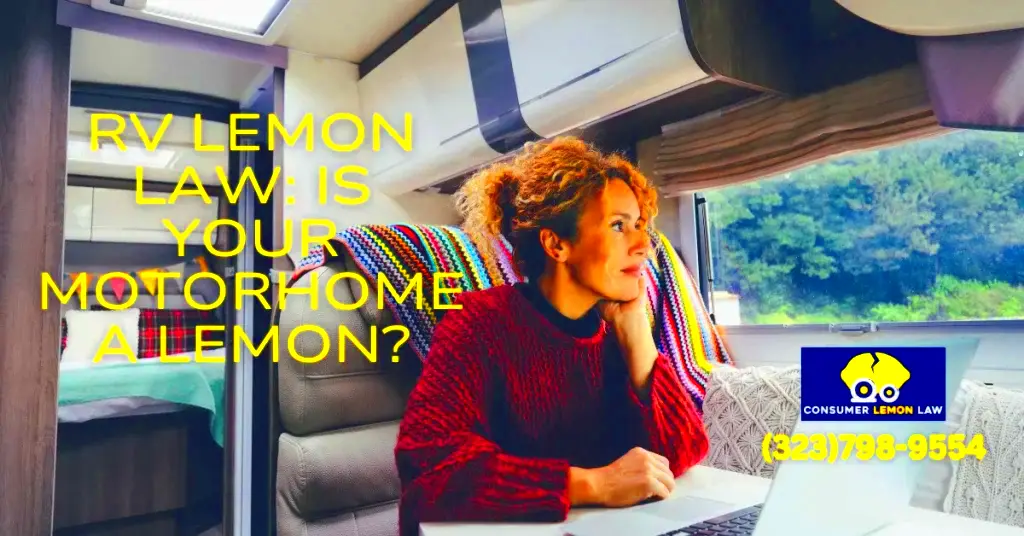Understanding Lemon Law for Campers
Lemon Law is designed to protect consumers from purchasing defective vehicles, including campers. If you’ve bought a camper that has persistent issues and the manufacturer or dealer can’t fix it, you may be eligible for relief under Lemon Law. Understanding this law can help you make informed decisions and ensure you get what you paid for.
What is Lemon Law

Lemon Law is a set of consumer protection laws that vary by state. They provide a legal remedy for buyers of vehicles, including campers, that fail to meet quality and performance standards. Here’s a quick overview:
- Definition: A lemon is a vehicle that has significant defects that are not fixed after a reasonable number of attempts.
- Purpose: Lemon Law aims to ensure that consumers are compensated for defective products.
- Coverage: Laws cover new and, in some states, used vehicles that are still under warranty.
Each state has specific criteria regarding what constitutes a lemon, so it’s essential to familiarize yourself with your state’s law.
How Lemon Law Applies to Campers

When it comes to campers, Lemon Law can offer valuable protections for owners who encounter ongoing issues. Here’s how it generally works:
- Eligibility: Campers typically need to be new or used and still under warranty.
- Defects: The defects must substantially impair the use, value, or safety of the camper.
- Repair Attempts: Owners must give the manufacturer or dealer a reasonable opportunity to fix the problems, usually defined as two to four attempts.
- Time Frame: Most laws require that issues be reported within a certain period after purchase, often within the first 12-24 months.
Understanding these factors can help you navigate the Lemon Law process effectively, ensuring you have the best chance of a positive outcome.
Identifying Lemon Campers
Identifying a lemon camper can save you a lot of time, money, and frustration. But how do you know if your camper qualifies? Here are some key signs to look for:
- Recurring Issues: If your camper has the same problem that keeps coming back after repairs, it’s a red flag. Common issues might include:
- Electrical malfunctions
- Water leaks
- Engine problems
- Transmission issues
- Failed Repairs: If the dealer or manufacturer can’t fix the problem after several attempts, you may have a lemon.
- Time Out of Service: If your camper has been in the shop for repairs for a significant amount of time, it may qualify as a lemon. Check your state’s guidelines for specific timeframes.
Keep detailed records of all repairs and communications with the dealer or manufacturer. These documents will be crucial if you need to pursue a Lemon Law claim.
Steps to Take if Your Camper is a Lemon
If you suspect your camper is a lemon, taking the right steps can make all the difference. Here’s a straightforward guide to help you navigate the process:
- Document Everything: Keep a record of all repairs, service dates, and communications. This includes:
- Repair receipts
- Emails or letters to the dealer
- Notes from phone conversations
- Contact the Dealer: Reach out to your dealer and explain the ongoing issues. Give them a chance to resolve the problems.
- Notify the Manufacturer: If the dealer fails to help, contact the manufacturer. They may offer further support or initiate repairs.
- Consult a Lawyer: If issues persist, consider consulting a Lemon Law attorney. They can help you understand your rights and options.
- File a Claim: If you meet your state’s Lemon Law criteria, you can file a claim for a refund or replacement camper.
Following these steps diligently will strengthen your case and increase your chances of a favorable outcome.
Benefits of Lemon Law for Campers
Lemon Law offers several advantages to camper owners facing ongoing issues. Here’s how it can benefit you:
- Consumer Protection: Lemon Law is designed to protect consumers from faulty products. If your camper is a lemon, you have legal rights to compensation.
- Financial Relief: If your camper qualifies, you could receive a full refund or a replacement camper. This can alleviate the financial burden of unexpected repairs.
- Encourages Accountability: Lemon Law holds manufacturers accountable for the quality of their products, encouraging them to improve and maintain high standards.
- Peace of Mind: Knowing you have legal recourse if your camper is defective can provide peace of mind while you enjoy your outdoor adventures.
In summary, Lemon Law offers vital protections that can make a significant difference in your camper ownership experience. If you suspect your camper is a lemon, don’t hesitate to take action!
Common Misconceptions about Lemon Law
Lemon Law can be confusing, and several misconceptions might prevent you from understanding your rights. Let’s clear up some of the most common myths:
- Lemon Law Only Applies to Cars: While it’s true that Lemon Law is often associated with automobiles, it also applies to other vehicles, including campers, motorcycles, and trucks.
- You Must Go to Court: Many people believe that pursuing a Lemon Law claim requires going to court. In reality, most claims can be resolved through negotiation with the manufacturer or dealer, often without any legal action.
- You Can’t Get a Refund for Used Campers: Some states allow Lemon Law claims for used campers as long as they are still under warranty. Always check your state’s specific laws.
- All Defects Qualify: Not every problem qualifies for a Lemon Law claim. The defect must significantly impair the camper’s use, safety, or value. Minor issues typically don’t count.
- Lemon Law is the Same Everywhere: Lemon Law varies from state to state. It’s essential to understand your local laws to know your rights and options.
Being informed can help you navigate the complexities of Lemon Law and protect your rights effectively.
Frequently Asked Questions
Here are some common questions people have about Lemon Law for campers, along with straightforward answers:
- What qualifies a camper as a lemon? A camper is typically considered a lemon if it has significant defects that persist after multiple repair attempts.
- How many repair attempts are needed? Generally, if a dealer or manufacturer has had three to four opportunities to fix the problem and it remains unresolved, your camper may qualify as a lemon.
- What if I bought my camper used? In some states, used campers may qualify for Lemon Law protections if they are still under warranty.
- How long do I have to file a claim? Each state has its own timeframe, but typically you need to file your claim within a few years of the purchase date. Check your state’s laws for specific deadlines.
- Do I need a lawyer? While it’s not required, consulting a lawyer who specializes in Lemon Law can be beneficial, especially if your case is complicated.
These FAQs can help clarify some common uncertainties surrounding Lemon Law and assist you in making informed decisions.
Conclusion on Lemon Law for Campers
Understanding Lemon Law is essential for camper owners facing persistent issues with their vehicles. It provides vital protections, ensuring that consumers are not left stranded with faulty products. Remember:
- Know Your Rights: Familiarize yourself with your state’s Lemon Law provisions.
- Keep Records: Document all repairs and communications to strengthen your case.
- Act Promptly: If you suspect your camper is a lemon, take action quickly to file your claim within the designated timeframe.
Lemon Law can provide peace of mind and financial relief for those with defective campers. Don’t hesitate to seek help and take advantage of the protections available to you. By staying informed and proactive, you can ensure a more enjoyable camping experience.


